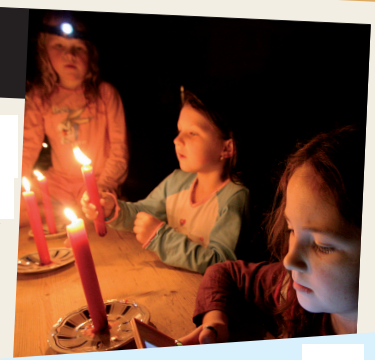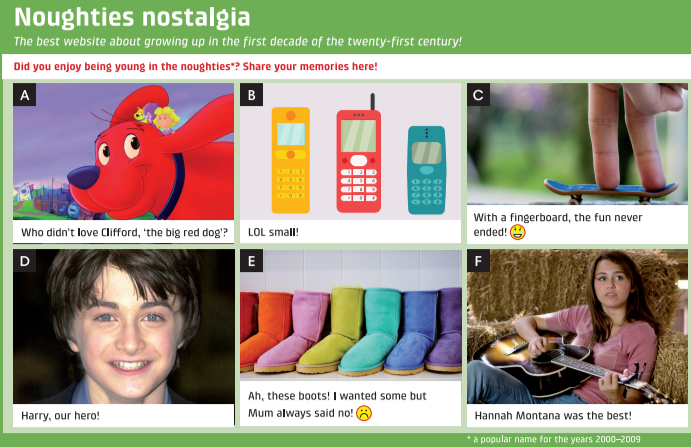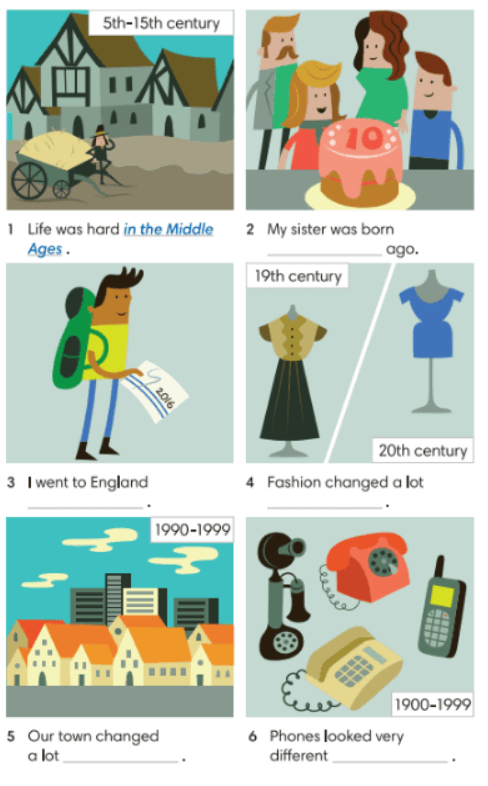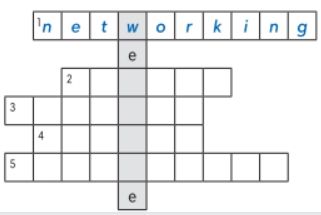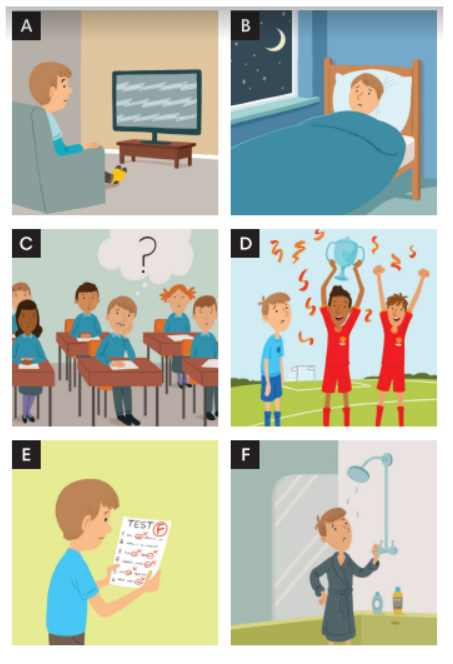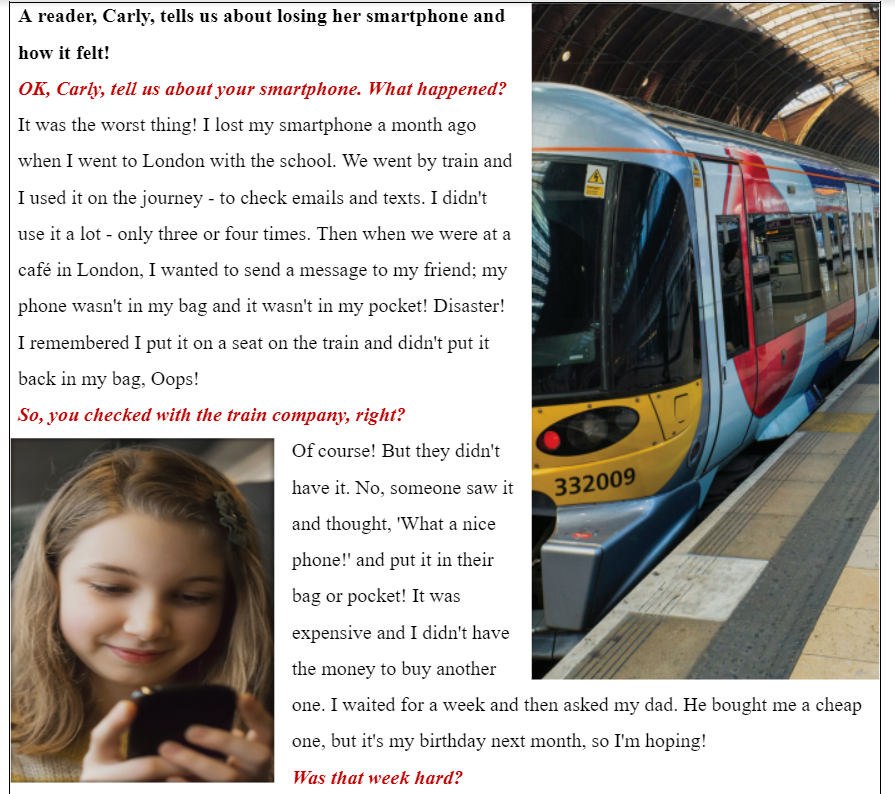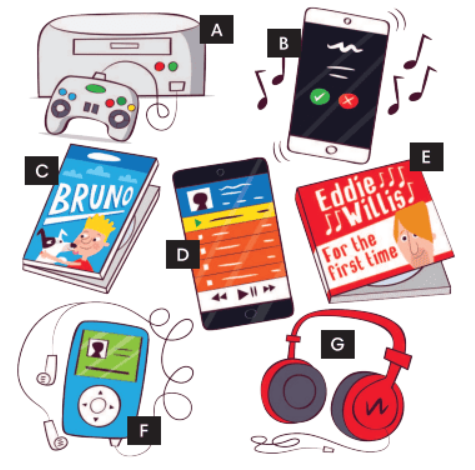Giải SGK, SBT Unit 7. The time machine English Discovery
Giải SGK, SBT Unit 7. The time machine English Discovery
3. Read the text again. Mark the sentences ✓ (right), x (wrong), or ? (doesn't say).
(Đọc lại văn bản. Đánh dấu câu ✓ (đúng), x (sai), hoặc ? (không đề cập đến).)
|
|
1. Only people from Birmingham took part in The Big Switch Off. |
|
|
2. Becky played a musical instrument with her sister. |
|
|
3. It was quite difficult for Becky to live without the Internet. |
|
|
4. The Carters often ate at the table before the experiment. |
|
|
5. The Carters couldn't cook during The Big Switch Off. |
4. Study the Vocabulary box. In pairs, find the things in the box that.
(Nghiên cứu khung từ vựng. Theo cặp, tìm các món đồ trong bảng đó.)
1. Becky talks about in the article.
(Becky nói về trong bài báo.)
2. You usually find in the kitchen/bathroom.
(Bạn thường thấy trong nhà bếp / phòng tắm.)
3. You think are most useful.
(Bạn nghĩ là hữu ích nhất.)
|
Vocabulary |
Everyday technology 1 (Công nghệ mỗi ngày) |
|
charger (sạc) cooker (bếp) electric toothbrush (bàn chải đánh răng điện tử) fridge (tủ lạnh) kettle (ấm đun nước) washing machine (máy giặt) |
|
2. In pairs, read the emails and answer the questions.
(Theo cặp, các em đọc thư điện tử và trả lời các câu hỏi sau.)
|
Hi Lily, How are you? I tried to phone but there was no answer. Did your first exam go OK? Grandma came to stay yesterday. This morning we went to Rochester Castle. Then we had lunch in a restaurant next to the river. The castle was boring but lunch was nice! After that Grandma bought me two T-shirts for my birthday. Lucky me! Guess what! I asked Grandma about Dad's job at the gas station. She said that he lost his job after only three days because he was late for work every morning! Phone me! Lots of love, Max XXX |
1. Who wrote the emails?
(Ai đã viết thư điện tử?)
2. Who did he write to? Why?
(Anh ấy đã viết cho ai? Vì sao?)
3. Who is staying with Max and his dad at the moment?
(Hiện tại ai đang ở cùng với Max và bố bạn ấy?)
3. In pairs, tick the things Max writes about in his email
(Theo cặp, các em hãy đánh dấu những gì mà Max đã viết trong email.)
| 1. what he did yesterday/today | |
| 2. plans for the future | |
| 3. funny or suprising news |
4. Study the Writing box. Find examples of the phrases and sentences in Max’s email.
(Nghiên cứu khung Writing. Tìm các ví dụ về các cụm từ và câu trong email của Max.)
|
Writing
|
An informal email with personal news (Thư điện tử không trang trọng với tin tức cá nhân) |
|
Greetings (Chào hỏi) Hi Lily./Hi Auntie Lynne, (Chào Lily. / Chào Auntie Lynne,) Ask for news (Hỏi tin tức) How are you? (Bạn khỏe không?) Did your exam go OK? (Kì thi có tốt không?) Did you have a nice Christmas? (Giáng sinh có vui không?) How was your week? (Tuần vừa rồi của bạn thế nào?) Give your news from the last few days (Cung cấp tin tức của em trong những ngày qua) yesterday/at the weekend/this morning/ (hôm qua/ vào cuối tuần/ sáng nay) next/then/after that (tiếp theo/ sau đó/ kế đến) I went to/saw/visited/met/bought/made/ played/stayed ... (Tôi đã đi/ đã xem/ đã ghé thăm/ đã gặp/ đã mua/ đã làm / đã chơi/ đã ở lại) Add some funny or surprising news (Bổ sung thêm tin tức hài hước hoặc gây ngạc nhiên) Guess what! Jen told me that Keira likes me! (Đoán xem! Jen đã nói với mình rằng Keira thích mình!) Closing sentence (Câu kết thúc thư) See you soon./Write back soon./Phone me. (Sớm gặp lại bạn nhé. / Viết lại cho mình sớm nhé. / Gọi điện thoại cho mình nhé.) Ending (Cuối thư) Love/Lots of love,/Love and hugs,/Kisses, (Yêu thương/ Yêu nhiều/ Yêu và ôm, / Hôn,) |
|
1. Replace the words in bold with the words below to make sentences with the opposite meaning.
(Thay các từ in đậm bằng các từ dưới đây để thành câu có nghĩa trái ngược.)
|
begin disagree join lose remember rude sell |
1. I rever forget my email address.
(Tôi chưa bao giờ quên địa chỉ email của mình.)
I never remember my email address.
(Tôi chưa bao giờ nhớ địa chỉ email của mình.)
2. Last year I decided to leave a popular social nerworking site.
(Năm ngoái, tôi quyết định rời khỏi một trang mạng xã hội nổi tiếng.)
3. The people who work in that phone shop are very friendly.
(Những người làm việc trong cửa hàng điện thoại đó rất thân thiện.)
4. It was a good idea to buy that smartphone.
(Đó là một ý kiến hay khi mua điện thoại thông minh đó.)
5. Piotr and I always agree about which computer games we like.
(Piotr và tôi luôn đồng ý về việc chúng tôi thích trò chơi máy tính nào.)
6. When did she get her job?
(Khi nào cô ấy nhận được công việc của mình?)
7. What time did the race end?
(Cuộc đua kết thúc lúc mấy giờ?)
4. Make sentences about what you did/didn’t do when you were five years old using the Past Simple forms of the verbs below. In pairs, compare your answer.
(Hãy viết những câu về những gì các em đã làm/không làm khi các em năm tuổi dùng thì quá khứ đơn cho những động từ dưới đây để diễn đạt câu nói của mình. Theo cặp, các em hãy so sánh đáp án với nhau.)
| eat have like listen to play |
When I was five, I ate a lot candy. I didn't...
(Khi tôi năm tuổi, tôi ăn nhiều kẹo. Tôi đã không...)
6. In pairs, follow the instructions below. Then swap roles.
(Theo cặp, các em hãy làm theo hướng dẫn bên dưới. Rồi thay đổi vai diễn cho nhau.)
- Student A, make a sentence that is true for using the ideas below.
I think the noughties were cool.
(Tôi nghĩ những năm 2000 đến 2009 thật tuyệt vời.)
- Student B, do you agree with the Student A’s oponion?
|
electric toothbrushes (bàn chải đánh răng điện tử) platic bottles (chai nhựa) social networking sites (mạng xã hội) the noughties (những năm 2000 đến 2009) game consoles (trình điều khiển game) smartphones (điện thoại thông minh) The World Wide Web (mạng lưới thế giới) The twenty-first century (thế kỈ 21) |
is are were |
useful (có ich) dangerous (nguy hiểm) brilliant (xuất sắc) cool (đáng yêu) expensive (đắt tiền) boring (nhàm chán) exciting (thú vị) |
3. Read the article again. Mark the sentences ✓ (right), X (wrong) or ? (doesn't say).
(Đọc lại bài viết. Đánh dấu các câu ✓ (đúng), X (sai) hoặc ? (không nói).)
|
____ |
1. Carly lost her phone at a café in London. (Carly bị mất điện thoại tại một quán cà phê ở London.) |
|
____ |
2. She travelled to London with classmates. (Cô ấy đã đi du lịch đến London với các bạn cùng lớp.) |
|
____ |
3. Someone took her phone from her pocket. (Ai đó đã lấy điện thoại từ trong túi của cô ấy.) |
|
____ |
4. She didn't use her phone that day. (Cô ấy đã không sử dụng điện thoại của mình vào ngày hôm đó.) |
|
____ |
5. Her dad is buying her the newest phone for her birthday. (Bố của cô ấy đang mua cho cô ấy chiếc điện thoại mới nhất cho ngày sinh nhật của cô ấy.) |
|
____ |
6. She missed her phone a lot. (Cô ấy nhớ điện thoại của mình lắm.) |
3. Listen to an interview. Match the speakers (1-4) with the questions they are answering (a-h).
(Nghe một cuộc phỏng vấn. Nối người nói (1-4) với câu hỏi họ đang trả lời (a-h).)
|
1. Beth 2. Becky 3. Charlie 4. Lisa |
a. Where did you meet your first best friend? b. Did you live near him or her? c. Were your hobbies and interests the same? d. Did you like the same music? e. What toys did you like? f. Did you like the same food? g. Did you dress in a similar way? h. Is he or she still your best friend today? |
CÁC BÀI TẬP KHÁC





